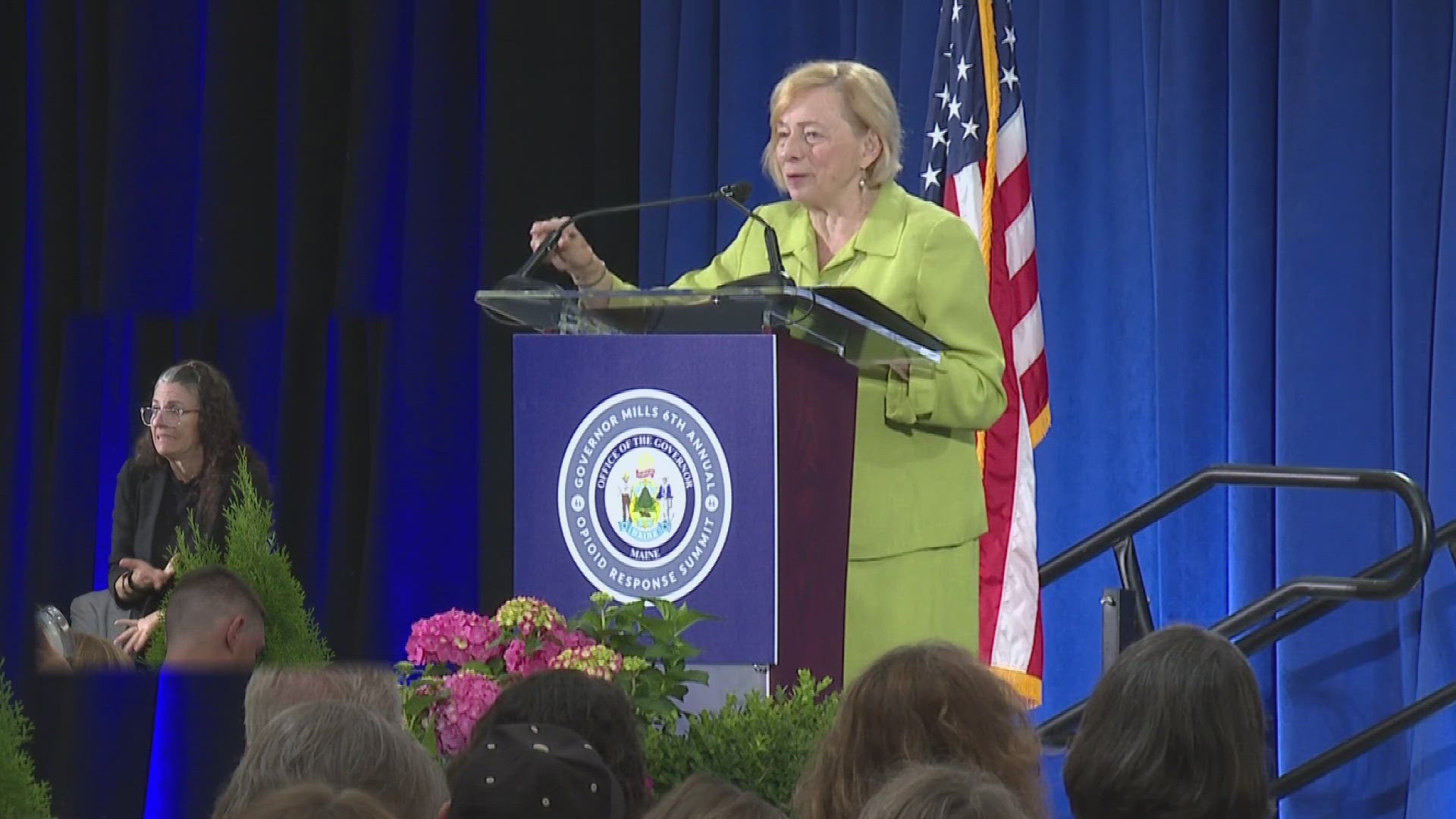AUBURN, Maine — Maine's sixth annual Opioid Response Summit took place Thursday in Auburn, where small successes to combat the state's opioid crisis were highlighted. But leaders at the event said there is still a long road ahead.
Attendees of the event, which was held at Central Maine Community College, were able to sit in on several keynote speakers and breakout groups to learn how state leaders and local resources have been helping Mainers in recovery.
"I'm celebrating six years of recovery in August," attendee Kate Reagan said. "Recovery looks different for everybody, and what works for me might not work for the next person."
The state's response has also shifted to different angles to address the needs of dozens of Mainers on their own paths of recovery.
Gordon Smith, the director of opioid response, said strides have been made to lessen the number of fatal overdoses in the state since the event began in 2019.
"I think the message today is hope," Smith said. "We'll never get to zero overdoses, but we can do so much better than we were doing six years ago, four years ago, 10 years ago. And that's the goal."
Miriam Delphin-Rittmon of the Substance Abuse and Mental Health Services Administration, or SAMHSA, was the featured speaker at the event and provided a perspective from the federal level. Delphin-Rittmon said current priorities center around increasing the availability of overdose reversal medications.
"Maine was one of our participants in our naloxone participation academy," Delphin-Rittmon said. "It's vital that naloxone and other overdose-reversing drugs are there when people need it."
Another focus of the summit is the prevention of even more illegal drugs in Maine from other states.
Gov. Janet Mills said her administration has already used nearly $1 million this year to educate Mainers about the sedative xylazine.
"Alarmingly so far this year, 17 percent of fentanyl overdose deaths in Maine have also included xylazine," Mills said.

